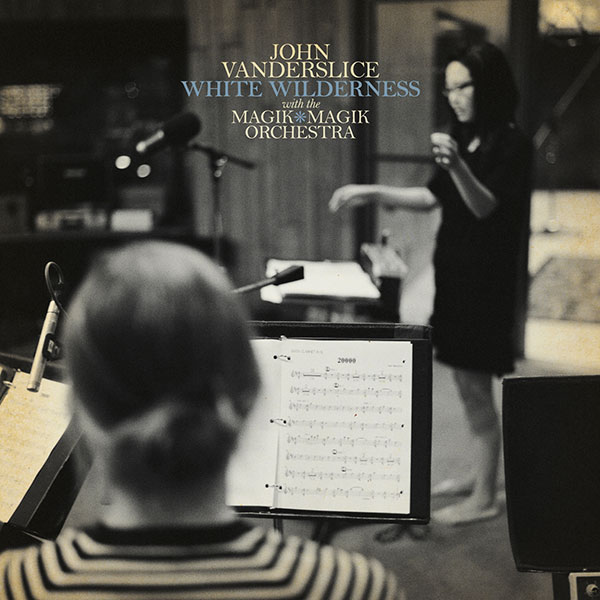
REVIEW: JOHN VANDERSLICE – WHITE WILDERNESS (2011)
It was just a little over a month ago that I posted, recanting in review form how I started my love affair with John Vanderslice, right here at Mezzic. You see, I’d known who Vanderslice was for years and I knew why he mattered to indie music. I just hadn’t ever gotten around to letting Vanderslice into my life. I held no grudge against the Floridian. For some reason, I just never found time for Vanderslice. Finally, the convincing of Seattle music journalist Abby Holmes coupled with my mingled bordem with the music scene and my genuine Vandeslice curiosity and, thus, a love affair was born. All my misconceptions about Vanderslice were proven to be just that in the span of a few notes of Vanderslice’s free 2010 EP, Green Grow The Rushes. Instead of another indie folk guy ripping off Jeff Mangum with his lackadaisical folk, I found myself listening to a man who knew how to use sound in such a lush and orchestral way that he rivaled the genius of Jon Brion. And anyone who knows my love of Brion knows that that is a comparison I take very seriously. (Note to the uninitiated: Take a glance at the man’s wiki, won’t you, and learn that Vanderslice is more than just a damn fun name to say).
In my brief time with Vanderslice I’ve learned a few things about the musician, the most important of which to remember when listening to Vanderslice is:
– If Vanderslice is one thing, it’s prolific.
Having just released the aforementioned Green Grow The Rushes less than a year ago, Vanderslice has wasted no time in readying his next full length, White Wilderness. This time, Vanderslice has the Magik Magik Orchestra at his disposal and is all the better off for it, which brings us to the second things I’ve learned about Vanderslice:
– The more he has to work with, the better he sounds.
I’m not entirely familiar with much of Vanderslice’s back catalog – Not yet, at least – so I can’t tell you if there was a day when his recordings were more akin to early Elliott Smith than the orchestral maneuvers of Smith’s Figure 8 days but what I can tell you is that the coupling of Vanderslice and the Magik Magik orchestra is one of pure beauty. As evidenced on the more ambitious tracks on Vanderslice’s past releases, the more lush elements he uses in his music – No matter how gently they’re presence is executed – the more perfect his songs sound. The man is, above all else, an amazing producer with a vast understanding of how to manipulate sound to get it to evoke just the emotion he wants the listener to feel.
Vanderslice’s voice is unmistakable. Occasionally, it can come across as cold and detached but more often than not, it is rife with emotions that seem to expose Vanderslice in a way that even the most honest of his lyrics do not. Sung by a less clever musician, even a song as appealing as lead single “Sea Salt” could flounder and die before it’s charms were exposed but standing before a profuse backdrop of strings and thundering percussion, Vanderslice sings “There’s no one I hate more than the man who stands before you” and it’s as if the musician himself is whispering his secrets to you and you alone. It’s easy to forget while listening to Vanderslice that you’re not the only one privy to the candor in his songs. Even easier, however, is falling in love with Vanderslice, which is to say that I’ve added Vanderslice to the ever-growing list of indie musicians that I would totally bare the children of, despite the fact that the last thing I want in life is a fetus crawling around my living room.
While listening to White Wilderness, it’s easy to forget that you’re listening to a record and not a score. The disc’s palatial orchestration makes White Wilderness an apt inspiration for any composer and it wouldn’t at all be shocking if an indie auteur in the vein of P.T. Anderson or Charlie Kaufman built a script around the album itself. In fact, White Wilderness occasionally evokes shades of the grandeur of Jon Brion’s Punch Drunk Love score in the best way possible, with all the oddities that Brion would exhibit were White Wilderness one of his original compositions.
While consistently over reaching, White Wilderness is never a burden to listen to as Vanderslice never forgets his pop sensibilities. White Wilderness, even at it’s most ambitious moments (“Convict Lake”, “Overcoat”), never overpowers the listener with an overabundance of elements. Vanderslice is a man who knows what he’s doing at every turn and does so with a ridiculously deft hand. The completely instrumental opening minute of “20K” evokes more emotion without words than most artists can evoke in entire albums. Once Vanderslice’s mournful vocals enter the scene, “20K” turns into a song that unfolds before you cinematically as you await the conclusion with baited breath.
For me, however, one of the most lovely moments on an album as teeming with rich elements as White Wilderness is the exclusively acoustic “After It Ends”. In the movie that was never made that White Wilderness isn’t the soundtrack to, “After It Ends” acts as a soft lullaby after a moment of crushing defeat, as the heroine attempts to come to terms with the crushing heartbreak that’s destroyed her personal life. Has she lost her job? Just gotten a phone call that one of her parents has died? Did her fiance just break up with her in a ridiculously callous way? Has she been horribly humiliated by the best friend she was secretly in love with? In my life, I know what scene it’s presence most applicable to but the beauty of White Wilderness is that you can apply the powerful presence of Vanderslice’s voice to your own life however you see fit and the cinematic quality will be just as apparent, turning you life into the movie that was never made that White Wilderness ought to be the score to.
Rating: 8.8/10
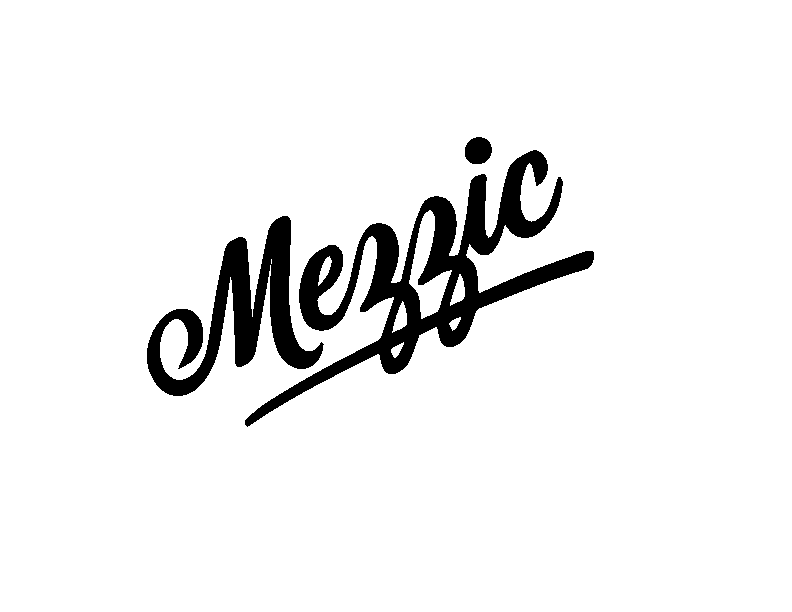
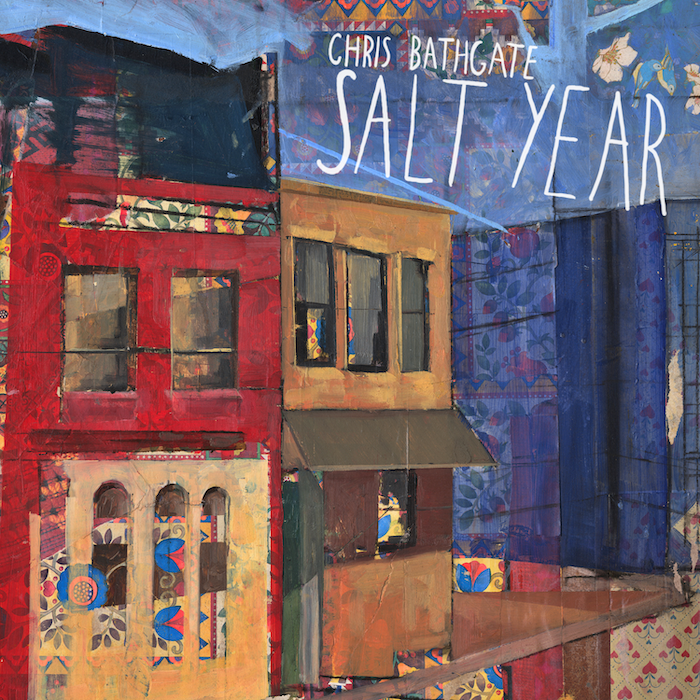
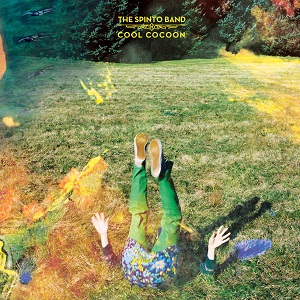
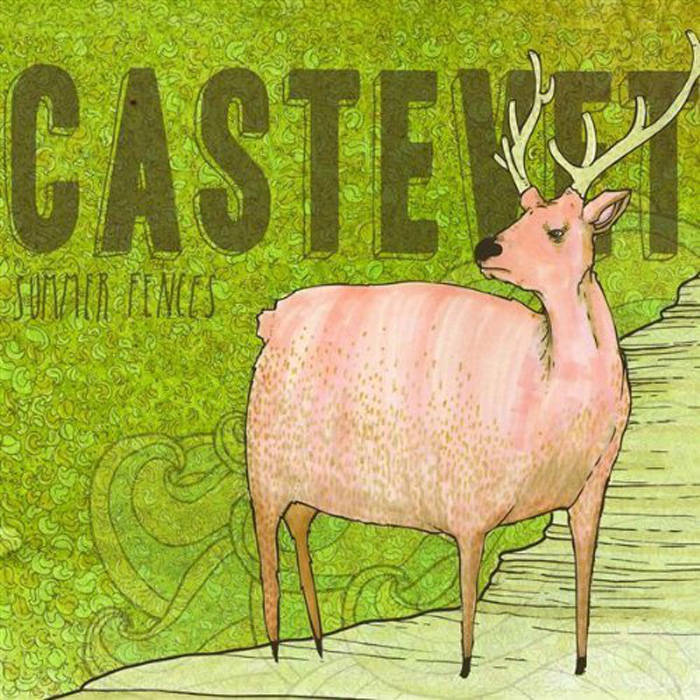
Post a comment